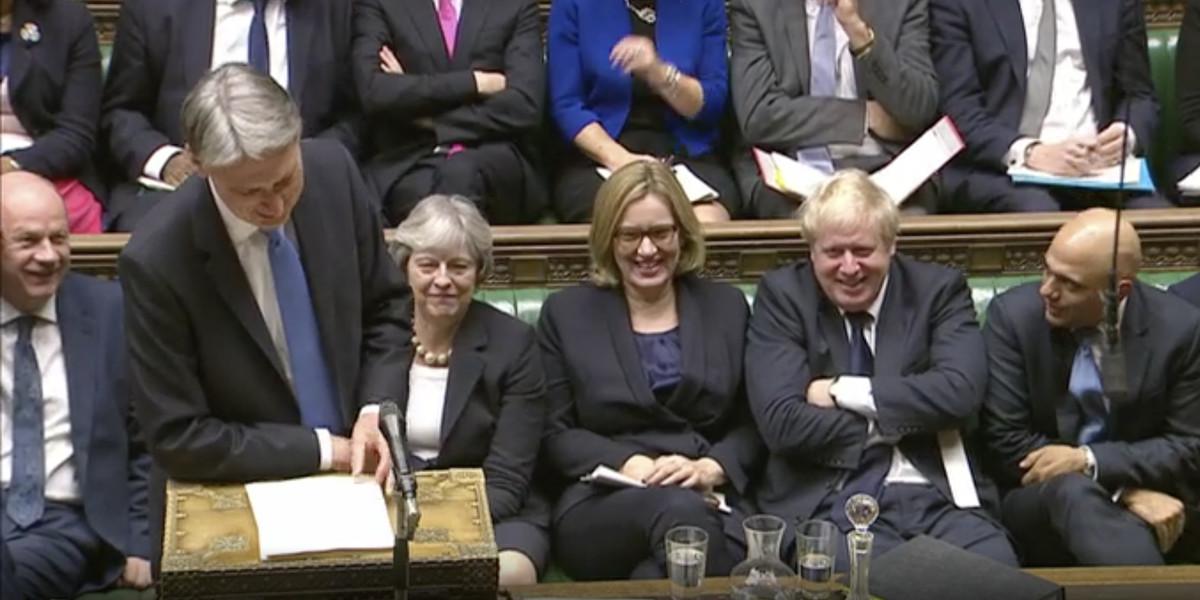In many ways, the Spring Budget, and the Chancellor’s now infamous national insurance U-turn, represented the first unravellings of Theresa May’s government.
The seven months since have seen the Conservative majority slashed in Parliament and a series of gaffes and scandals seriously weaken the Prime Minister’s authority.
With the Chancellor’s hands increasingly tied by Brexit and facing pressure from his own party, the Autumn Budget was billed as a make or break opportunity to rescue his damaged credibility.
For small business owners facing rising interest rates, price increases, and waning consumer demand, it was hoped the Chancellor’s Budget announcements would provide the necessary reassurance and relief to counter these threats.
Here are the top five things we picked up for small business owners.

So, small businesses were largely spared an assault like they faced in the last budget. Instead, much of the focus turned to the downgraded growth forecasts and stamp duty announcements.
However, we’ve decided to focus on three areas that generated discussion amongst business owners and industry figures.
VAT system reform
In the run-up to the Budget, there were significant murmurings that the Chancellor was set to lower the VAT registration threshold, from £85,000 to as low as £26,000. This worried many businesses and lobbying groups, such as the FSB. This was acknowledged by the Chancellor when he announced he would not be lowering the threshold… just yet.

Relief was felt all around.


What we say
It was expected by many that the Chancellor would lower the VAT registration threshold, so it’s a pleasant surprise that he has held off from doing so. A decrease in the threshold would have put a new burden on many small business owners, who would have had to put procedures in place to collect the additional tax, costing extra time and money to the businesses who can least afford it.
Business rates reform
There was some hope that the plans to increase business rates, the focus of much debate at the last Budget, might be scrapped entirely. This was not the case. However, Mr. Hammond did confirm that CPI indexation would be brought forward to April 2018.

Again, this was largely welcomed.

Yet for many people, the business rates system remains flawed and outdated.

What we say
With the costs that businesses are facing, such as a rising national living wage and pension auto-enrolment, bringing the switch in indexation from RPI to CPI forward to April 2018 is welcome. However, the government really needs to look at the whole system of business rates in their entirety, as they may no longer be fit for purpose in an era where many brick and mortar businesses are competing with, and losing out to, online businesses who are not currently required to pay these costs. A rethink of them is essential if the UK is to have healthy and thriving high streets, and rates that are fair and appropriate for all businesses.
In relation to this, the decision by the government to crack down on online VAT evasion and make online marketplaces responsible for the unpaid VAT of their sellers should also help level the field a little more for high street businesses.
Driverless cars
If there was a central thrust to the Chancellor’s vision here, it was in harnessing the economy around the UK’s strong position as a global technology leader and innovator. This included a £2.5bn fund to create the next generation of ‘unicorn’ companies.
To illustrate this point, the Chancellor made reference to driverless cars – a prime example of an industry his government would be investing in, aiming to have UK roads ready for the first driverless cars by 2021. This brought the best line of the speech…

What we say
Some of the most significant employment roles in the UK involve driving, such as jobs as taxi drivers and delivery drivers. Moves to increase driverless cars will cause those drivers to fear for their jobs, and while it is right that the government should be looking to embrace new technology and innovations, it’s to be hoped that they are planning how to protect those drivers and their livelihoods if their roles are taken by driverless cars.
In addition, driverless cars are likely to be electric. £28bn is raised annually for the Government from petrol sales, so there’ll be a huge hole in finances for public spending that the Treasury will need to consider as well.
Away from small business, here are some of the other big announcements in a largely controversy-free Budget.

We’d love to hear what you made of the Chancellor’s Autumn Budget. Let us know in the comments section below or get in touch on Facebook and Twitter.










